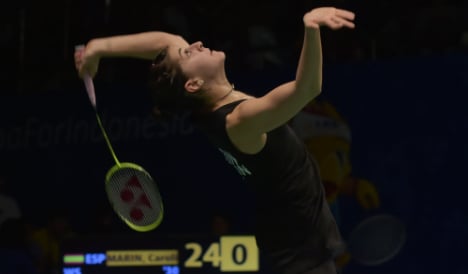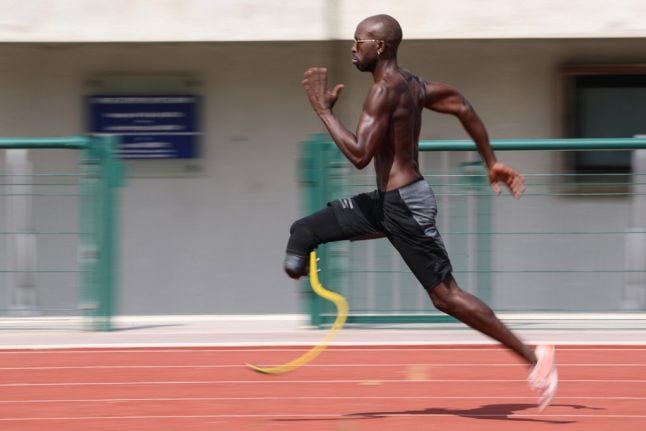Marin's ambitions are lofty but realistic. She is a two-time world champion in a sport normally dominated by Asia.
She is also ranked number one in the world and has blazed the trail for badminton in Spain where minority sports struggle for funding and attention in the shadows of the nation's star-studded football teams.
“It is an obsession and an ambitious objective,” said Marin at the end of another day's training at the performance centre in Madrid she describes as “home.”
“It will be more difficult than the world championships because there is more pressure, the expectations from the press and the people are very different to a world or European championship. But I am desperate for it to come and, above all, enjoy the Olympic games.”
Marin was dumped out in the first round in London four years ago as a 19-year-old by gold medal winner Li Xuerui of China, but much has changed since winning the world championships for the first time two years ago.
She retained her world title in Indonesia last year and won the European championships for a second time in May to consolidate her place as world number one and the only European player in the top 10.
“The secret of all this is in the work we have done. Many hours in this centre, which is my home. It is the fundamental key to my climb up the rankings.”
Flamenco badminton
Yet, another key to the unexpected rise of a girl from Huelva on Spain's sunny southwest coast to world number one was her love of flamenco as a youngster.
“I danced flamenco and thanks to a friend I got to know badminton.
“They are very different, but there are some movements in dancing flamenco, above all the fluidity of my body, which helps me play badminton.”
Marin will follow Nadal as Spain's flag bearer at the opening ceremony on August 5th.
Yet, despite speaking of the 14-time tennis grand slam champion in reverential terms, she admitted she has already done more for badminton in her homeland than even Nadal has for tennis.
“Before Nadal we had already discovered tennis. Manolo Santana was the one that opened tennis to Spain. However, I am the one who has opened badminton to Spain.
“I feel very proud and fortunate to have done so. Hopefully in the future we will have more Spanish champions.”
Gone are the days when she says taxi drivers used to ask her what badminton was when she arrived back from international competitions with racket in hand.
“After the first world championship nobody asked me 'what is badminton?' People recognise me in the streets, when I get into a taxi they congratulate me and say they are honoured to give me a lift, so things have changed a lot in Spain.”
Gold on August 19th could see Marin catapulted even further into the media spotlight if she can see off the likes of Chinese world number two Wang Yihan, defending champion Li and Indonesia's Ratchanok Intanon, who has been cleared of an anti-doping violation, to take part.
And unlike many tennis and golf stars, Marin insisted she won't let fears of the Zika virus ruin her dreams of Olympic gold.
“When I heard about the mosquito problem I was worried more than anything because you could get ill during the Olympics.
“To think that after all the preparation we have done to get there and then you could get ill when you are there.
“But for sure we will have the means to avoid that.”
“The doctors will take all the precautions and in the end the player has to trust in the doctors, physios and team that surrounds them.”
By Kieran Canning and Jean Decotte





 Please whitelist us to continue reading.
Please whitelist us to continue reading.
Member comments